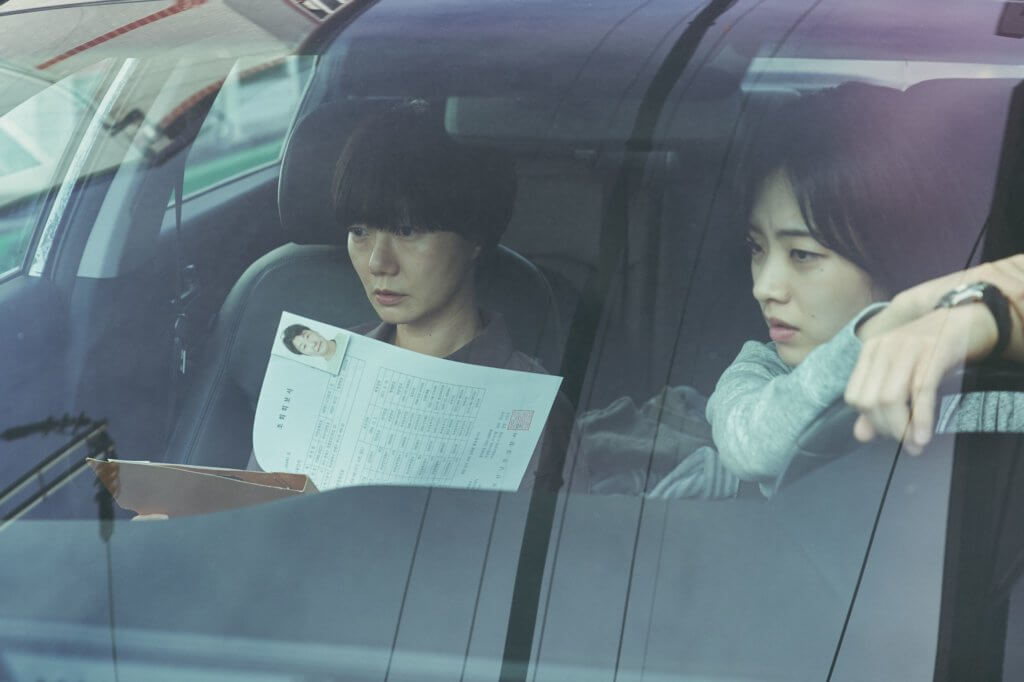After making a movie in France, Japanese director Hirokazu Kore-eda travels to South Korea for the second stop of his makeshift world tour. Palme d’Or winner for Shoplifters in 2018, Kore-eda is the only non–South Korean name in the closing credits; Broker stars Korean acting royalty Song Kang-ho and K-pop superstar IU, among others in its star-studded cast. Also borrowing cinematographer Hong Kyung-pyo and composer Jung Jae-il from 2019 Palme d’Or–winning Parasite, Kore-eda has fully steeped himself in Korean filmmaking and its ever-expanding industry.
The crossover between two Palme d’Or–winning films has created immense hype for the return of Kore-eda to the Croisette, but it’s balanced by the muted critical reception since and the language barrier present in his French film The Truth. The film itself is exactly in-between: Broker is one of his most thematically ambitious and daring films yet, but it’s also arguably his messiest, most sprawling screenplay. Working in South Korea or Korean has also lost some of the director’s visual rawness and patient understatement in Japanese.
Emblematic of Broker’s biggest problem is how difficult it is to sum up its plot: So-young (IU) drops off her newly born son at a “baby box.” The infant is picked up by Sang-hyun (Song Kang-ho) and Dong-soo (Gang Dong-won), who secretly sell babies to parents for adoption, bypassing the long and bureaucratic processes of orphanages. They and So-young go on a road trip to find suitable adopters, while police eager to press child trafficking charges trail them. At some point, some gangsters get involved.
Kore-eda has rarely, if not never worked with a cast this big. He fails to balance the multi-threaded plot involving multiple storylines. The movie drops in momentum every time it cuts to the cops, as they only serve as mouthpieces weighing opinions on the situation, without ever developing any personality. An 8-year-old joins the central characters’ journey for no reason other than to earn cute points. And the less said about the failed comic relief or meaningless presence of the gangsters, the better. Even the A-story feels like a rough first draft; the characters spend a good 30 minutes at an orphanage for, again, no apparent reason at all. Kore-eda is able to hold onto to his trademark bittersweet tone, but his storytelling has never been this fragmented and messy.
On the other hand, what makes the plot difficult to write up is also its greatest strength: there’s no way to euphemize the characters’ actions. Kore-eda has written many movies about stolen families, but never has he centered a script on such morally reprehensible people, clearly guilty of child trafficking. Because of Kore-eda’s warm, humanistic gaze, the characters do not come off as terrible people, and instead of giving them a pass, he actually complicates the movie. While Kore-eda tricks the audience into rooting for these people, he is also questioning our moral compass. Because he is willing to color his characters the darkest shade of white (or the lightest shade of black), he gives the movie weight and complexity. And despite his focus on the adults, he brings out the children’s suffering at the end: tossed around brokers, buyers, and police, these children are like chips in a game, lacking a real home, resolution, or future. There are no winners in this chase, and no side is correct.

The erratic plotting also sacrifices Kore-eda’s visual style and pacing. Kore-eda has been widely named the heir to domestic drama master Yasujirō Ozu, partially because they share a similar visual style of patient long takes and master shots. The road trip setting and jumpy plot of Broker means Kore-eda rarely finds time to settle into a scene and patiently wring out the emotions. Hong Kyung-pyo turns in comfortable work, but the ad-ready, plasticky sheen of the digital cinematography – a rarity in Kore-eda’s filmography – makes me miss the celluloid, grainy authenticity of Kore-eda’s other films.
It didn’t help Broker that its premiere was sandwiched between the slow cinema conversation-starter Pacifiction and the tearjerking crowdpleaser Close. It’s important to remember how many factors affect a movie’s reception at Cannes – the expectations, the programming, the stars on the red carpet. Broker still shows a modern master willing to push his work forward and visit uncomfortable places, even if this comes with a messier script. At this point, Kore-eda has made more than ten movies about family, and it doesn’t look like he will stop anytime soon. He shows that you can keep making the same movie again and again and not be boring (take notes, Dardenne Brothers). Broker is an entry to his filmography that, if anything, works in relation to his other movies; he is constantly evolving what he has to say about the configuration of family, and Broker contributes yet another chapter to his never-ending treatise.
